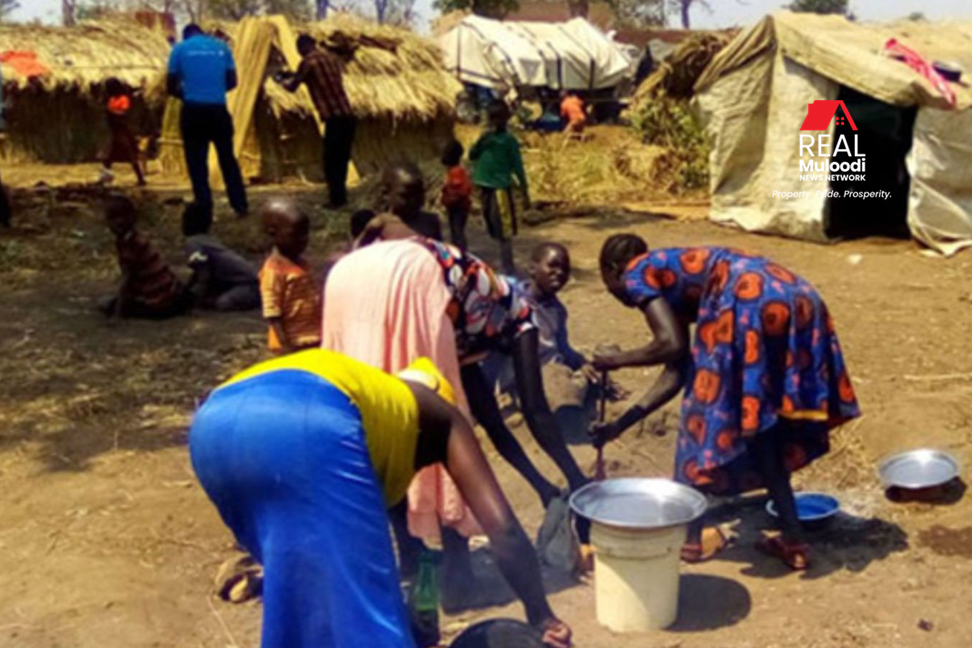UGANDA, Acholi | Real Muloodi News | In a pivotal move, the government has pressed pause on transactions involving customary land in the Acholi Sub-region, specifically targeting the conversion of ownership to freehold titles by new buyers.
The Lands Ministry’s decision is rooted in legal guidance from the Attorney General, advising a suspension of such dealings until the completion of ongoing investigations by a government verification committee.
This intervention follows a Constitutional Court decision and aligns with an Executive Order issued by President Museveni, aiming to address issues related to the Balaalo and land ownership.
This comprehensive exploration delves into the intricate legal landscape, historical context, and socio-economic implications surrounding the halting of private titles on customary land, shedding light on the challenges faced by the Kiryandongo residents.
The genesis of this governmental intervention can be traced back to a 2019 petition filed by retired Justice Galdino Okello and others against the Attorney General.
The petition challenged the constitutionality of district land boards in the Acholi Sub-region administering degazetted land and former public lands, which were previously customarily owned.
The Constitutional Court’s determination emphasised that customary institutions have the authority to recognise ownership under customary tenure, allowing individuals to apply for certificates of customary ownership or convert recognised land into freehold tenure through registration.
Attorney General Kiryowa Kiwanuka, the principal government legal advisor, highlighted the significance of a February 20 Constitutional Court decision in a letter to the Ministry of Lands.
Citing Executive Order No. 3 of 2023, issued by President Museveni in May regarding the eviction of the Balaalo, Kiwanuka advised a halt on the issuance of titles in the Acholi sub-region.
The aim is to allow the verification committee and customary institutions to scrutinise the legitimacy and ownership claims of individuals regarding the land.
The Acholi Sub-region, encompassing northern Uganda, has become a hotspot for land-related tensions. Allegations of wealthy individuals collaborating with local actors to irregularly acquire extensive land and displace vulnerable indigenous communities have intensified.
The aftermath of nearly two decades of Lord’s Resistance Army (LRA) rebellion in northern Uganda has added complexity to land disputes, with returning civilians struggling to reclaim ancestral lands seized by powerful entities.
President Museveni’s Executive Order Number Three, intended to evict the Balaalo from northern and eastern Uganda, faced challenges in implementation.
The involvement of Gen Caleb Akwandanaho, popularly known as Salim Saleh, President Museveni’s brother, raised concerns about the potential haste and disadvantages to legally-acquired cattle-keeping operations.
The Uganda People’s Defence Forces (UPDF) outlined hurdles in the eviction exercise, citing bribery, blackmail, and connivance as significant obstacles.
Leaders, primarily from Acholi, including Members of Parliament and prominent figures, voiced a unified stance that all Ugandans, except the Balaalo, are welcome.
However, the Attorney General’s legal opinion, restricting its application to Acholi, prompted questions about the specificity of the guidance.
Kiryowa defended the focused approach, stating that the guidance addressed a specific challenge in northern Uganda, and he had not formally received complaints from other regions.
The conversion of land to freehold or communal land has raised concerns, given that freehold title holders enjoy perpetual ownership rights, including the ability to sell, rent, lease, or dispose of the land at will.
Acholi leaders’ claims that the Balaalo represent untouchable interests in the government have fueled suspicions.
The Ministry of Lands, aligning itself with the Attorney General’s legal stance, has faced heightened demand for freehold title registrations on customary land.
Denis Obbo, the spokesperson for the Lands Ministry, disclosed that they have halted the consideration of hundreds of applications by new buyers to convert customary land to freehold.
While acknowledging the Attorney General’s advice, Obbo emphasised that it doesn’t impede the issuance of certificates of customary ownership.
The government’s verification team is actively conducting inquiries into the acquisition of swathes of land.
The land question remains a central and persistent challenge in Uganda’s socio-political landscape. President Museveni’s establishment of a commission of inquiry led by Justice Catherine Bamugemereire aimed to address land matters nationwide.
However, as of now, none of the commission’s resolutions, including titling all customary land to prevent disputes, have been implemented by the government.
John Ssenyonga, a cattle keeper, shared his perspective, emphasising compliance with the presidential directive and urging the Acholi community to allow those who acquired the land legally to stay.
In Pader District, herdsmen occupying areas around Aswa Ranch have faced accusations of harassment and land grabbing.
The district chairman, Fearless Obwoya, affirmed their commitment to evict indisciplined Balaalo herdsmen.
Cases of disagreements and disputes during the eviction exercise, known as Operation Harmony, are being mediated by an ad hoc committee led by Chief Justice Alfonse Owiny-Dollo.
The teams on the ground are tasked with verifying the compliance status of the Balaalo and removing non-conformists.
A recent study conducted between June and August 2023 revealed the security risks posed by the Balaalo in various regions of Uganda.
The study covered seven districts in West Nile, five in Acholi, four in Lango, three in Teso, and four in Karamoja, alongside Kween in Sebei Sub-region.
The majority of settled herdsmen acquired land through purchases, with only eight per cent of their land being titled.
The study highlighted Balaalo’s engagement in illegal activities, violence against local communities, and encroachment on ecologically fragile areas.
READ MORE LIKE THIS:
District Land Boards Ordered by Court to Leave Customary Land
Government Works Towards Registration of Customary Land in Greater North
The Government’s Drive to Certify Customary Land Meets Culture Clashes



